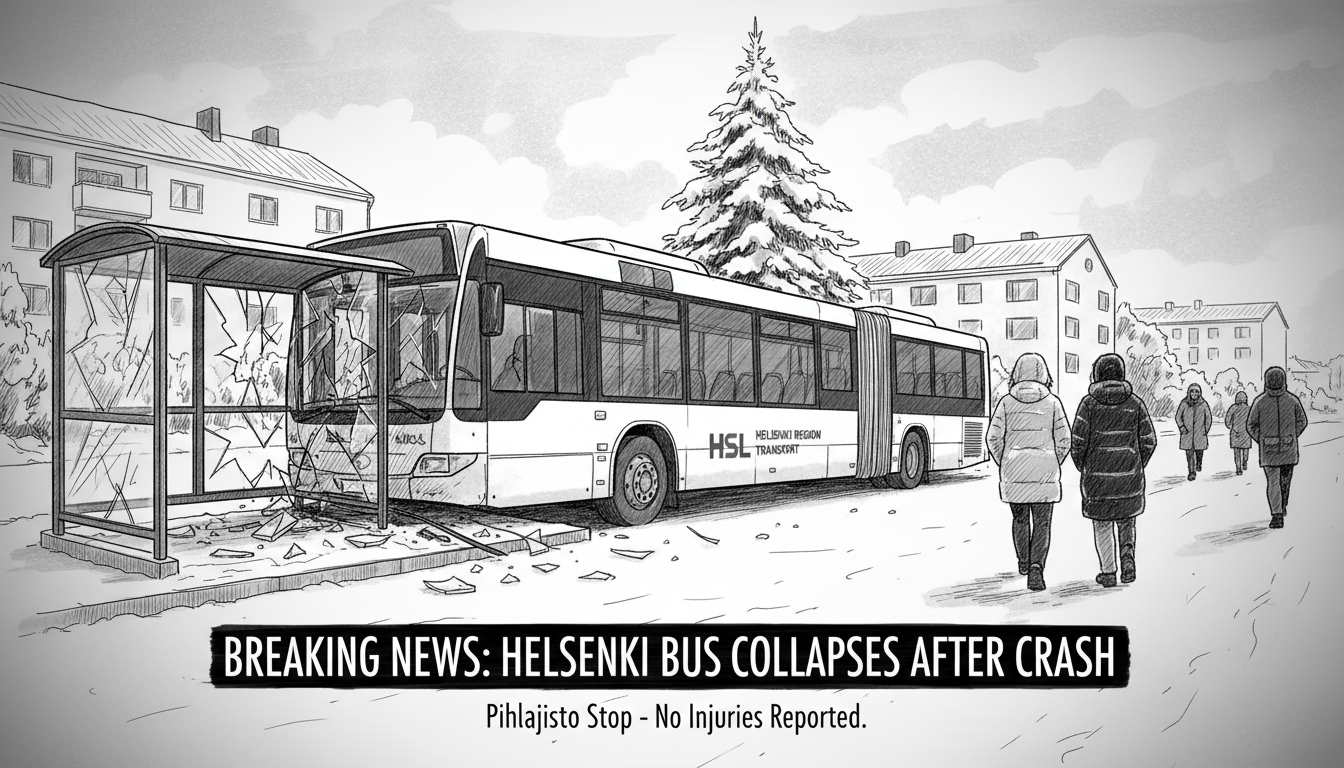A bus shelter in Helsinki's Pihlajisto neighborhood shattered into pieces on Monday. The Helsinki Regional Transport Authority bus crashed into the stop along Salpausseläntie road. Witnesses reported hearing a loud crashing sound before discovering the damaged structure.
Marko Jormanainen was having coffee nearby when the incident occurred. He told reporters he immediately knew something serious had happened. Jormanainen went to investigate and found the bus shelter severely twisted. Broken glass covered the surrounding area.
Transport officials confirmed the collision was accidental. Information manager Joona Packalén stated the bus likely hit the shelter while arriving or departing. He noted the safety glass broke into rounded pieces that posed minimal danger. No injuries resulted from the incident according to official reports.
Emergency services quickly arrived at the scene. They confirmed the tilted shelter structure no longer presented risks to public safety. Cleanup crews later removed debris from the damaged stop.
Approximately ten passengers exited the bus following the collision. The vehicle then continued its scheduled route without further disruption. Public transport operations resumed normally throughout the area.
This incident highlights ongoing challenges with urban infrastructure maintenance in Nordic cities. Helsinki's public transport system serves hundreds of thousands daily. While generally reliable, occasional accidents reveal vulnerabilities in station design and driver training protocols.
Finland invests heavily in public transportation infrastructure. The country prioritizes safety and efficiency in its urban planning. Yet even well-maintained systems experience unexpected failures. This particular crash occurred despite Finland's reputation for meticulous transportation management.
Local residents expressed relief that nobody waited at the stop during the accident. Empty shelters during collisions represent small victories in urban safety. The incident could have produced very different outcomes during peak commuting hours.
Transport authorities will likely review procedures following this crash. They typically analyze accident causes to prevent recurrences. Such evaluations help maintain Finland's high standards for public transportation safety.
International readers might find this story particularly relevant. Many cities worldwide struggle with similar public transport challenges. The Finnish response demonstrates systematic approaches to infrastructure management. Other municipalities could learn from Helsinki's transparent handling of the situation.

